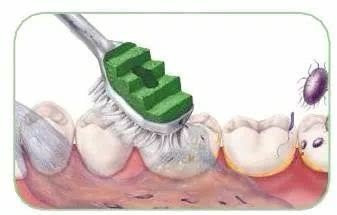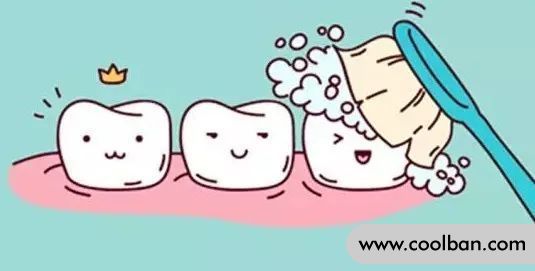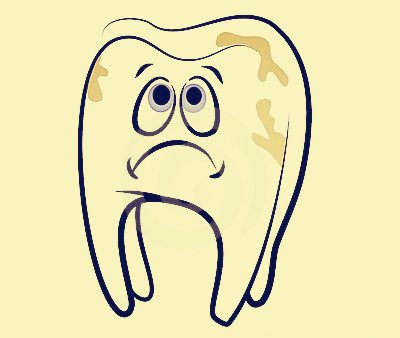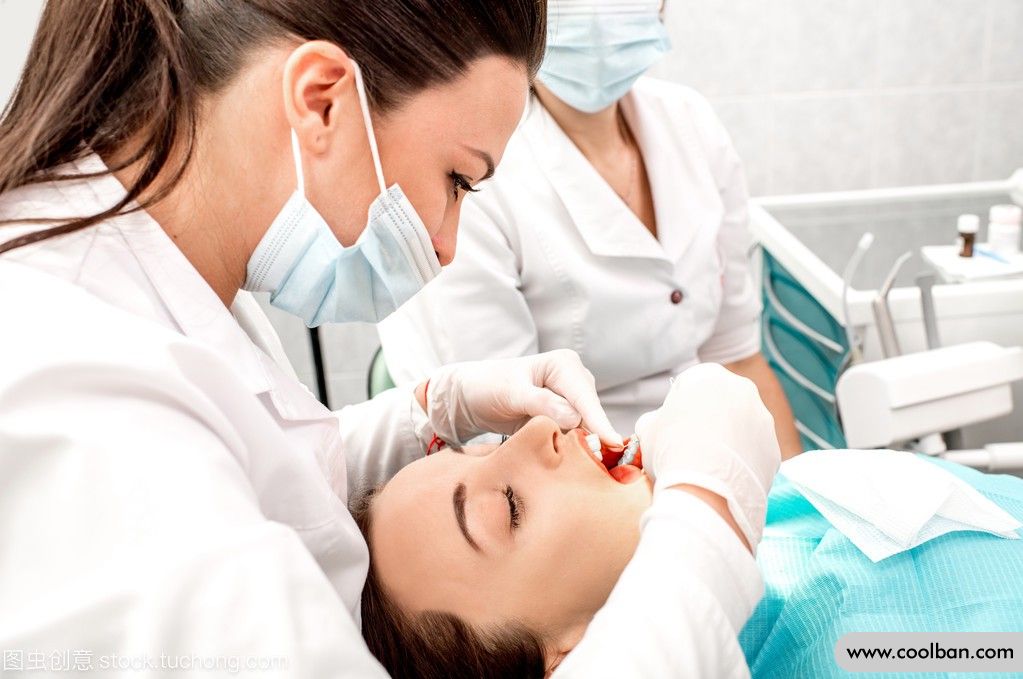How to remove plaque?
2022-09-04
Since the oral cavity is a bacterial environment, everyone will have dental plaque. Over time, the combination of dental plaque and minerals in saliva will calcify and harden to form dental calculus, which will lead to caries or periodontal disease.
So how do you get rid of plaque?
Use the correct toothbrush and toothpaste
In order to effectively clean your teeth and ensure the plaque removal is as clean as possible, it is important to choose the right tools. The American Dental Association states that any "round-tipped, polished soft-bristled nylon toothbrush" will work to clean your teeth. Hard-bristled toothbrushes can wear down tooth enamel. In addition to the right toothbrush, you also need a good fluoride toothpaste. Fluoride strengthens teeth and prevents cavities.

Electric toothbrushes are not much better than regular manually operated toothbrushes. But an electric toothbrush will brush your teeth more regularly and for longer, and if so, investing in an electric toothbrush is also a good idea.
Dentists recommend changing your toothbrush every 3 to 4 months, as the cleaning power of the toothbrush becomes weaker over time.
Use the correct brushing method
When brushing, hold the toothbrush at a 45-degree angle to the gum line and brush outward from the gum in short vertical, back-and-forth, or circular motions. Don't brush too hard or you will damage the enamel.

Focus on each tooth
Make sure you brush every tooth, making sure you don't miss any. Remember to brush the outer surfaces of your teeth, as well as the inner surfaces and the occlusal surfaces, paying special attention to those behind the teeth that are not easily accessible. It is more appropriate to control the brushing time to 2 minutes - you can use a stopwatch to time how long 2 minutes are, and you can hum a song to spend these 2 minutes.
Remember to brush your tongue
Plaque can easily form on the surface of the tongue due to food debris, so make sure to brush your tongue lightly as well. This will also help freshen your breath.
Maintain good oral hygiene
Brush your teeth twice a day. Brushing your teeth is by far the most effective way to remove plaque, and proper and regular brushing will help ensure less plaque builds up. It is important to note that the plaque that forms can transform into calculus, which is more difficult to remove. Brush your teeth at least once a day, but dentists recommend brushing twice a day, once in the morning and once before bed.

Cleaning between teeth with dental floss
Flossing your teeth is an important part of effective oral hygiene, although it's unfortunately often overlooked. Flossing removes plaque and food debris from between your teeth, helping to prevent plaque from forming. This should be done once a day at bedtime before brushing your teeth. Do a sawing motion between the teeth to avoid pulling the floss too hard between the teeth, which can irritate the delicate gum tissue.

Make sure you use a clean section of floss between each tooth, or you'll carry the bacteria you just picked up from one gap to the other.
If flossing doesn't work, you can use toothpicks instead. A toothpick is a small stick made of wood or plastic that can be inserted between your teeth to achieve the same effect as dental floss.
Use a mouthwash for plaque
While a plaque-fighting mouthwash alone isn't enough to remove all plaque, when used in conjunction with your daily brushing and flossing, it can help loosen plaque and give you a minty, fresh breath.
The bacteria in plaque live on sugar and starchy foods. In fact, every time you eat these foods, the bacteria release an acid that causes bad teeth and cavities. To avoid this, eat less of this food.
Regular professional cleaning
Despite the strictest oral hygiene routines at home, a visit to the dentist about every six months is good for you. Only a dentist can give your teeth a professional, thorough cleaning that removes the hardest-to-reach plaque and stubborn calculus.

Home remedy
Use baking soda. This is one of the oldest natural ways to remove plaque at home. Put a small amount of baking soda in a bowl, wet the toothbrush, and dip the bristles in the baking soda. Brush your teeth as usual. You can also mix some salt in the baking soda powder.
Eat apples and melons. Eating an apple or some melons directly after a meal will help clean your teeth naturally and prevent plaque from forming on the surface of your teeth. This also helps with gum health and prevents bleeding gums.
Chew sesame seeds. Chew a spoonful of sesame seeds, but don't swallow them. Then brush your teeth with a dry toothbrush, using the sesame seeds as a type of toothpaste. They will help remove plaque and polish your teeth.
Use the correct toothbrush and toothpaste
In order to effectively clean your teeth and ensure the plaque removal is as clean as possible, it is important to choose the right tools. The American Dental Association states that any "round-tipped, polished soft-bristled nylon toothbrush" will work to clean your teeth. Hard-bristled toothbrushes can wear down tooth enamel. In addition to the right toothbrush, you also need a good fluoride toothpaste. Fluoride strengthens teeth and prevents cavities.

Electric toothbrushes are not much better than regular manually operated toothbrushes. But an electric toothbrush will brush your teeth more regularly and for longer, and if so, investing in an electric toothbrush is also a good idea.
Dentists recommend changing your toothbrush every 3 to 4 months, as the cleaning power of the toothbrush becomes weaker over time.
Use the correct brushing method
When brushing, hold the toothbrush at a 45-degree angle to the gum line and brush outward from the gum in short vertical, back-and-forth, or circular motions. Don't brush too hard or you will damage the enamel.

Focus on each tooth
Make sure you brush every tooth, making sure you don't miss any. Remember to brush the outer surfaces of your teeth, as well as the inner surfaces and the occlusal surfaces, paying special attention to those behind the teeth that are not easily accessible. It is more appropriate to control the brushing time to 2 minutes - you can use a stopwatch to time how long 2 minutes are, and you can hum a song to spend these 2 minutes.
Remember to brush your tongue
Plaque can easily form on the surface of the tongue due to food debris, so make sure to brush your tongue lightly as well. This will also help freshen your breath.
Maintain good oral hygiene
Brush your teeth twice a day. Brushing your teeth is by far the most effective way to remove plaque, and proper and regular brushing will help ensure less plaque builds up. It is important to note that the plaque that forms can transform into calculus, which is more difficult to remove. Brush your teeth at least once a day, but dentists recommend brushing twice a day, once in the morning and once before bed.

Cleaning between teeth with dental floss
Flossing your teeth is an important part of effective oral hygiene, although it's unfortunately often overlooked. Flossing removes plaque and food debris from between your teeth, helping to prevent plaque from forming. This should be done once a day at bedtime before brushing your teeth. Do a sawing motion between the teeth to avoid pulling the floss too hard between the teeth, which can irritate the delicate gum tissue.

Make sure you use a clean section of floss between each tooth, or you'll carry the bacteria you just picked up from one gap to the other.
If flossing doesn't work, you can use toothpicks instead. A toothpick is a small stick made of wood or plastic that can be inserted between your teeth to achieve the same effect as dental floss.
Use a mouthwash for plaque
While a plaque-fighting mouthwash alone isn't enough to remove all plaque, when used in conjunction with your daily brushing and flossing, it can help loosen plaque and give you a minty, fresh breath.
The bacteria in plaque live on sugar and starchy foods. In fact, every time you eat these foods, the bacteria release an acid that causes bad teeth and cavities. To avoid this, eat less of this food.
Regular professional cleaning
Despite the strictest oral hygiene routines at home, a visit to the dentist about every six months is good for you. Only a dentist can give your teeth a professional, thorough cleaning that removes the hardest-to-reach plaque and stubborn calculus.

Home remedy
Use baking soda. This is one of the oldest natural ways to remove plaque at home. Put a small amount of baking soda in a bowl, wet the toothbrush, and dip the bristles in the baking soda. Brush your teeth as usual. You can also mix some salt in the baking soda powder.
Eat apples and melons. Eating an apple or some melons directly after a meal will help clean your teeth naturally and prevent plaque from forming on the surface of your teeth. This also helps with gum health and prevents bleeding gums.
Chew sesame seeds. Chew a spoonful of sesame seeds, but don't swallow them. Then brush your teeth with a dry toothbrush, using the sesame seeds as a type of toothpaste. They will help remove plaque and polish your teeth.
